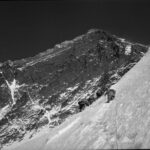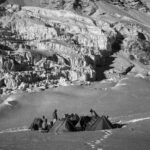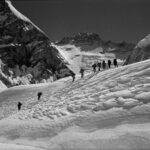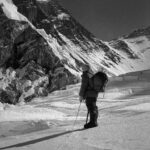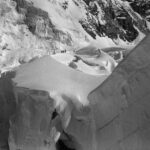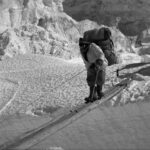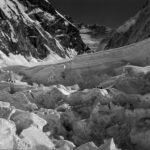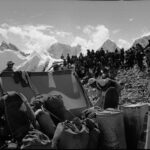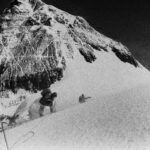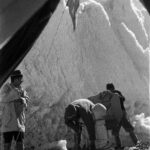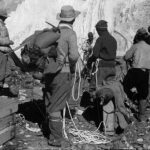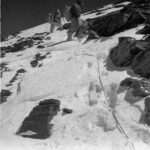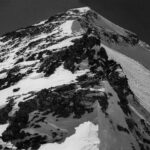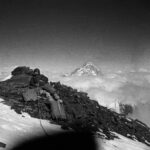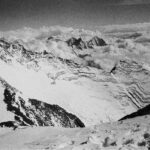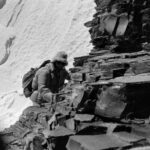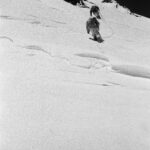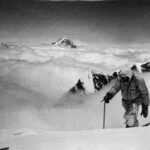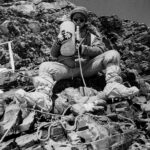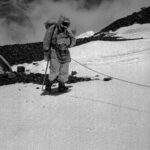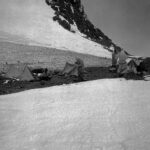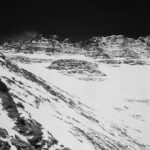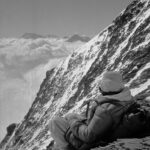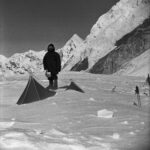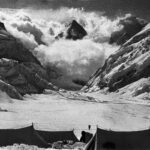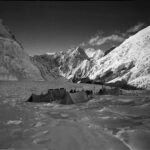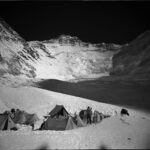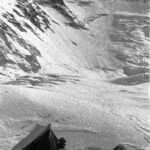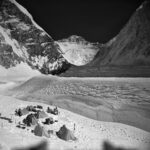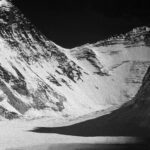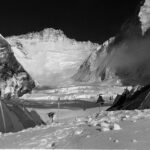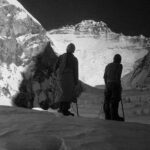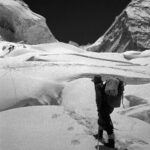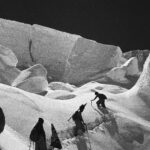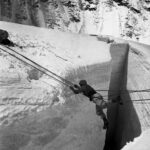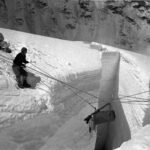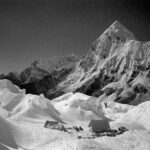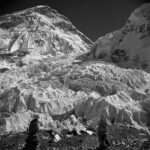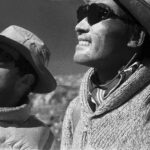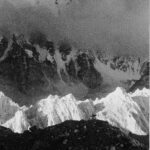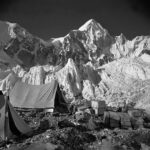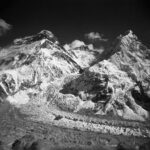Everest, spring 1952
Excerpt from: Swiss Foundation for Alpine Research, 1939 to 1970. Published in Zurich in 1972
Participants: Dr. med. Edouard Wyss-Dunant, expedition leader; René Dittert, lead climber; Dr. med. Gabriel Chevalley, expedition doctor; Jean-Jacques Asper; René Aubert; Léon Flory; Ernest Hofstetter; Raymond Lambert; André Roch, all from Geneva. They were joined by a study group from the University of Geneva, made up of the geologist Prof. Dr. Augustin Lombard, the ethnologist Mme Marguerite Lobsiger and the botanist Albert Zimmermann.
Outcomes: Conquest of the Khumbu ice fall; ascent of the South Col (7986 m). Lambert and Sherpa Tenzing reached a height of about 8500 metres on the south-west ridge of Everest.
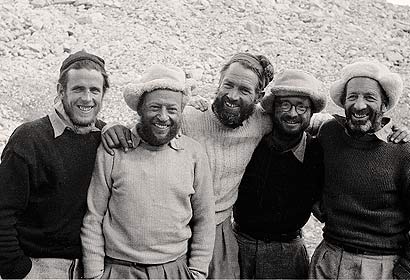
The doctor from Geneva, Edouard Wyss-Dunant, was appointed leader of this expedition. He was circumspect, calm, widely-educated and already experienced in the Himalayas. All the expedition’s participants were from Geneva, they almost all belonged to the exclusive «L’Androsace» climbing club, they knew each other very well, and they formed a first-class mountaineering team. There had hardly ever been such a close-knit, fully homogenous group of mountain climbers, all inspired by the same sense of enthusiasm. As well as the leader, Wyss-Dunant, Dr. Gabriel Chevalley, André Roch and Rene Dittert also had experience of the Himalayas.
The city and Canton of Geneva provided moral and financial support for the expedition, and the University of Geneva provided the scientific contingent. It was no exaggeration to say that this was a Genevan expedition.
The task that this team had set itself in relation to mountaineering comprised primarily of the exploration of the access to the South Col, the conquest of the labyrinthine Khumbu ice fall and possibly the advance to the South Col. No attempt at an ascent of Everest was ever under consideration in this case.
The results of this first Swiss Everest expedition are remarkable, and exceeded even the most optimistic expectations. At the first attempt, they had opened up a new route to Everest, and had reached an extraordinary height on the south-western ridge in difficult conditions. In the opinion of the extremely critical Marcel Kurz, this expedition could almost be compared to a victory.
